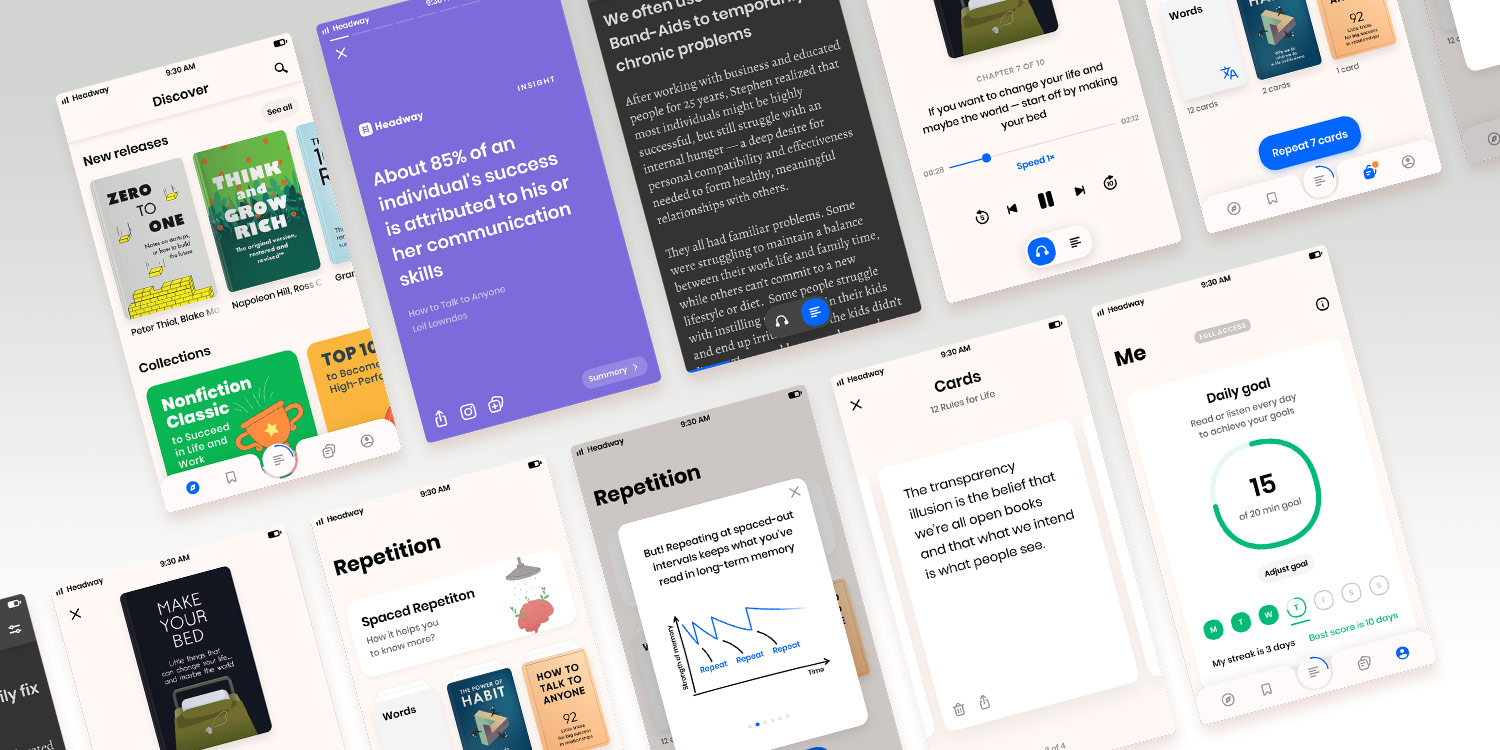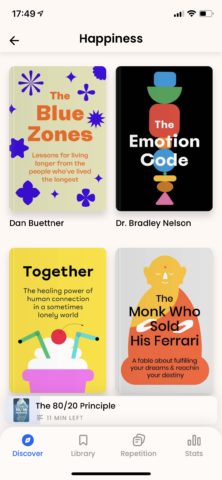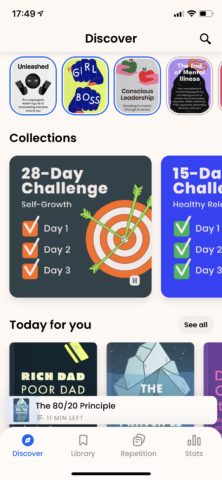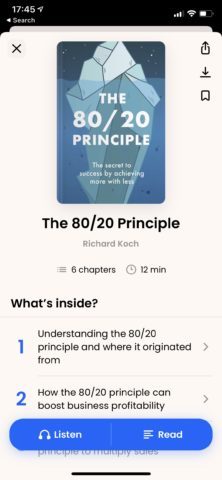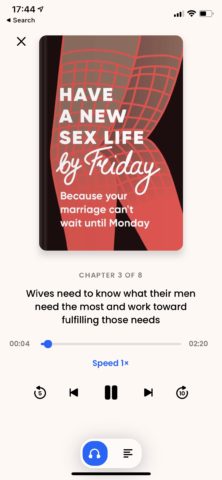Read more through non-fiction book summaries
Price: Free (IAPs)
Version: 96.3
Size: 90.7 MB
Developer: GTHW App Limited
Platform: iPhone / iPad
Plenty of people want to read more, but it’s often the case that people like the idea of reading more over the act of actually reading. Those folk might find solace in Headway, which is an app that tries to teach you new things based on the summaries of non-fiction books, without requiring you to set aside hours of your life, like regular books selfishly do. Selfish, selfish books.
But is that in the true spirit of reading? Not really. But does that matter when you can get the gist of something in 15 minutes? Maybe not. Trim the fat and you can absorb the essence of a book really quite quickly – or so Headway believes.
So, what’s it like to use? Firstly, the app looks great. The font choices and the smooth, flat design is very iOS. However, once you get through the initial set up – which involves teaching the app what you like and what you expect to achieve – your main home screen becomes quite cluttered and overwhelming. For someone that may have trouble fitting in reading, the paralysis of choice seems to have now reared its head as well. But this is a small quibble – at least you won’t be short of content to discover.
Once you pick a book, you’re given a quick rundown on what’s actually in the app’s summary of the book; a preview of a preview. From there, you can choose to either read the summary as a text article, or listen to it spoken aloud as if it was an audiobook or podcast. The reading option is great – the font is large, easy to read and the pages are short enough not to feel like you’re scrolling with no end in sight. Most books can be consumed within 5-15 ‘pages’.
But onto the audio option. This is something noted frequently by reviewers as leaving a lot to be desired. The voice is delivered robotically, lilting along inconsistently in dull cyber-burps. It’s not an easy listen and we’re not exactly sure who will want to listen to this for 15 minutes. On the other hand, the player is simple and straightforward, and so with improvements to the vocal delivery, this could be a worthwhile feature. How much could it cost to pay a voice artist – you know, an actual human – to read each blurb?
Either way, the information itself seems solid – but there’s no real way of knowing what you’re missing without reading the original book. Some of the summaries included in the app feel like an article you may read for free online. We guess that’s why the books exist in the first place – for added depth. Considering the premium plan at the time of writing is $89 a year, we wonder whether buying a handful of books and really grasping the subject matter would be more valuable. But that’s up to you.
Thankfully, there is an option to download books for reading or listening later – which is good for a commute where there may not be cellular reception – and when reading there are options to share key quotes. However, there appear to be a number of bugs elsewhere – in testing, we encountered some issues with the sharing and library management buttons.
Finally, you may be thinking this whole concept sounds eerily familiar. It’s true, the app is remarkably similar to the popular Blinkist app, which also offers 15-minute summaries of non-fiction tomes. Hrmm. Where Headway tries to differentiate itself is with its inspirational Home Screen widgets that showcase key quotes, and with its month-long “personal growth challenge.” If those features appeal, it may be enough to sway you – but we’d recommend trialing both this and Blinkist to see which you get on with better.
If you’re short on reading time but still ambitiously want to ‘absorb’ dozens of books a year, this could be the solution. But it’s not without faults.
